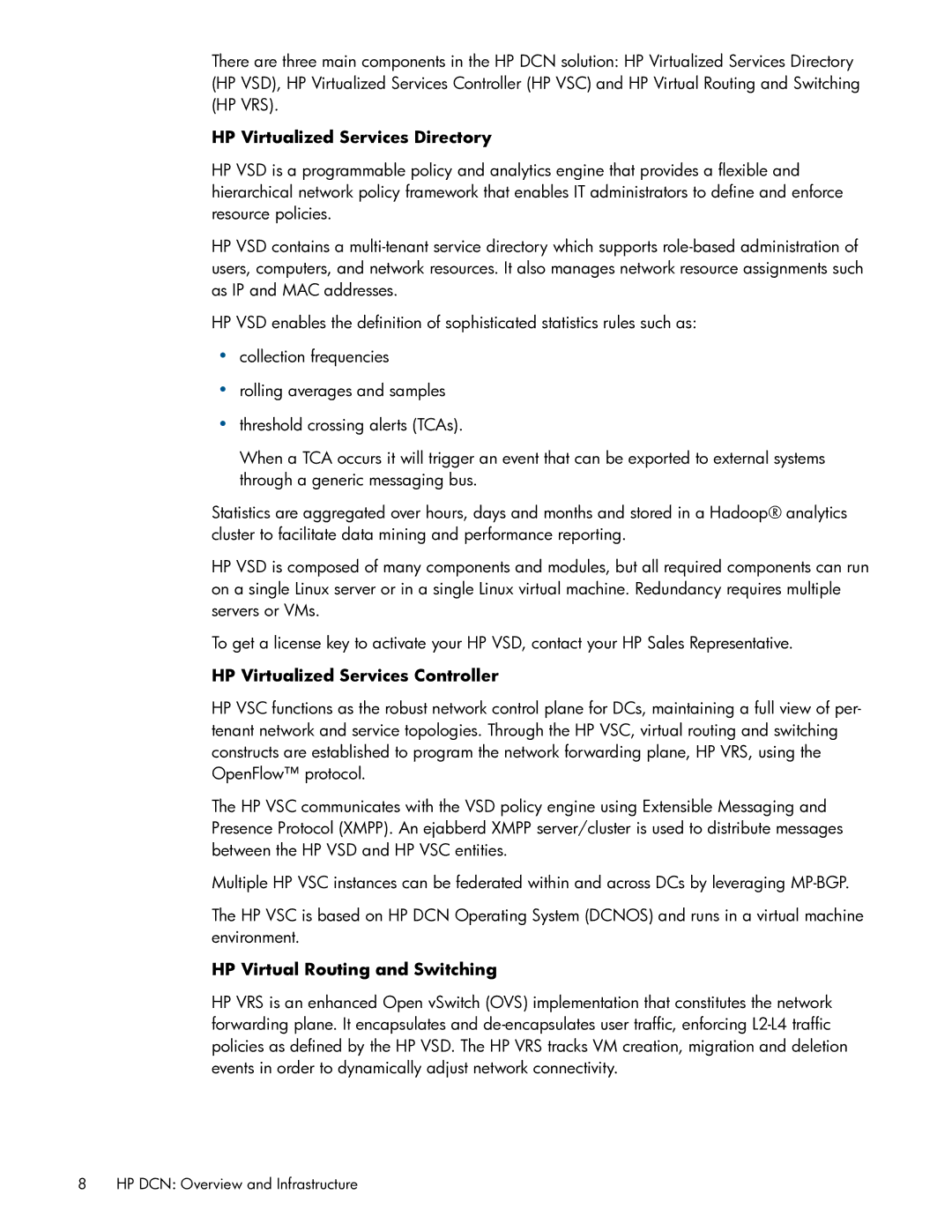There are three main components in the HP DCN solution: HP Virtualized Services Directory (HP VSD), HP Virtualized Services Controller (HP VSC) and HP Virtual Routing and Switching (HP VRS).
HP Virtualized Services Directory
HP VSD is a programmable policy and analytics engine that provides a flexible and hierarchical network policy framework that enables IT administrators to define and enforce resource policies.
HP VSD contains a
HP VSD enables the definition of sophisticated statistics rules such as:
•collection frequencies
•rolling averages and samples
•threshold crossing alerts (TCAs).
When a TCA occurs it will trigger an event that can be exported to external systems through a generic messaging bus.
Statistics are aggregated over hours, days and months and stored in a Hadoop® analytics cluster to facilitate data mining and performance reporting.
HP VSD is composed of many components and modules, but all required components can run on a single Linux server or in a single Linux virtual machine. Redundancy requires multiple servers or VMs.
To get a license key to activate your HP VSD, contact your HP Sales Representative.
HP Virtualized Services Controller
HP VSC functions as the robust network control plane for DCs, maintaining a full view of per- tenant network and service topologies. Through the HP VSC, virtual routing and switching constructs are established to program the network forwarding plane, HP VRS, using the OpenFlow™ protocol.
The HP VSC communicates with the VSD policy engine using Extensible Messaging and Presence Protocol (XMPP). An ejabberd XMPP server/cluster is used to distribute messages between the HP VSD and HP VSC entities.
Multiple HP VSC instances can be federated within and across DCs by leveraging
The HP VSC is based on HP DCN Operating System (DCNOS) and runs in a virtual machine environment.
HP Virtual Routing and Switching
HP VRS is an enhanced Open vSwitch (OVS) implementation that constitutes the network forwarding plane. It encapsulates and
8 HP DCN: Overview and Infrastructure
